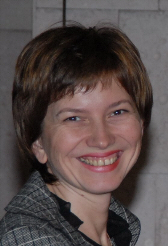СУГГЕСТИВНОСТЬ КАЗАХСТАНСКОГО ПОЛИТИЧЕСКОГО ДИСКУРСА
Аннотация
Ключевые слова
Литература
Баранов А.Н., Караулов Ю.Н. Русская политическая метафора: Материалы к словарю/А.Н. Баранов, Ю.Н. Караулов. -М.: Институт русского языка РАН, 1991. 193 с.
Генералюк И. Метафора как средство манипулирования в политическом дискурсе//Наукова бiблiотека України. URL: http://www.info-library.com.ua/libs/(дата обращения 02.02.14).
Головань О.В. Социальные и культурные основания политической науки: Учебник для вузов. -Барнаул: Изд-во АлтГТУ, 2005. 299 с.
Горин Е.В. Манипуляция как предмет политического дискурс-анализа: основные категории и методологические проблемы//Гуманитарные и социально-экономические науки. -Ростов-на-Дону: Изд-во: Сев.-Кав. науч. центр. ВШ ФГАОУ ВПО Южный ФУ, 2013. С. 120-126.
Демьянков В.З. Политический дискурс как предмет политологической филологии//Политическая наука. Политический дискурс: История и современные исследования. -М., 2002. № 3. С. 32-43.
Демьянков В.З. Эффективность политического дискурса//Язык СМИ и тексты политического дискурса. URL: http://evartist.narod.ru/text12/09.htm#з_08 (дата обращения 30.06.14).
Маслова В.А. Политический дискурс: языковые игры или игры в слова? Политическая лингвистика. 2008. № 24. С. 43-47.
Никитина К.В. Технологии речевой манипуляции в политическом дискурсе СМИ: на материале газет США: дис. … канд.филол.наук. -Уфа, 2006. 197 с.
Послание Президента Республики Казахстан Н. Назарбаева народу Казахстана. 17 января 2014 г. URL: http://www.akorda.kz/ru/page/page_215750_poslanie-prezidenta-respubliki-kazakhstan-n-nazarbaeva-narodu-kazakhstana-17-yanvarya-2014-g (дата обращения 30.01.14).
Ричардс А.А. Философия риторики//Теория метафоры/НД. Арутюнова. -М.: Знание, 1990. С. 44-67.
DOI: https://doi.org/10.12731/wsd-2014-11.10-4015-4030
Ссылки
- На текущий момент ссылки отсутствуют.
(c) 2016 В мире научных открытий
ISSN 2658-6649 (print)
ISSN 2658-6657 (online)






